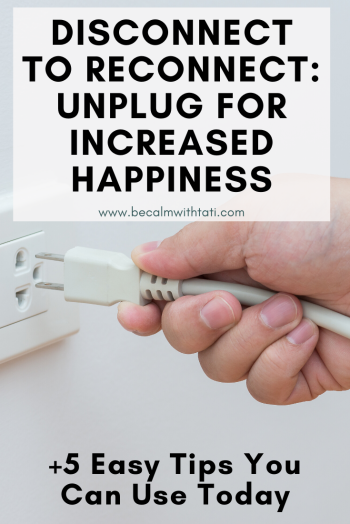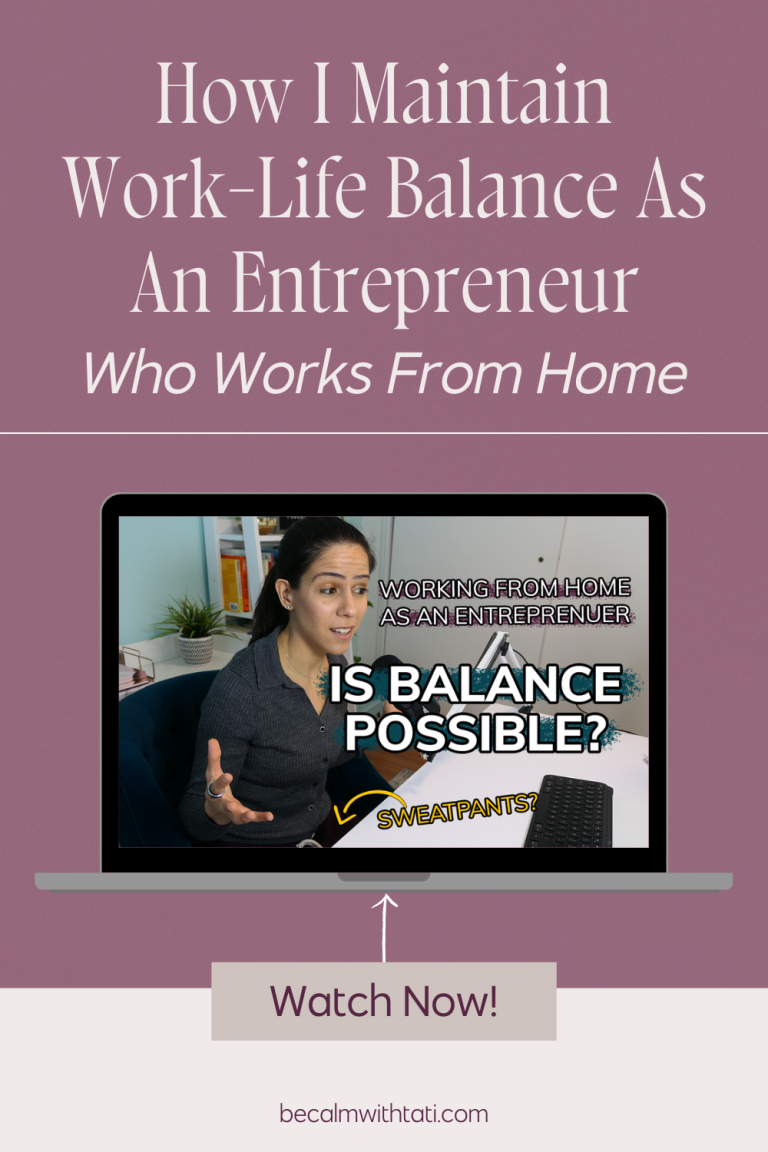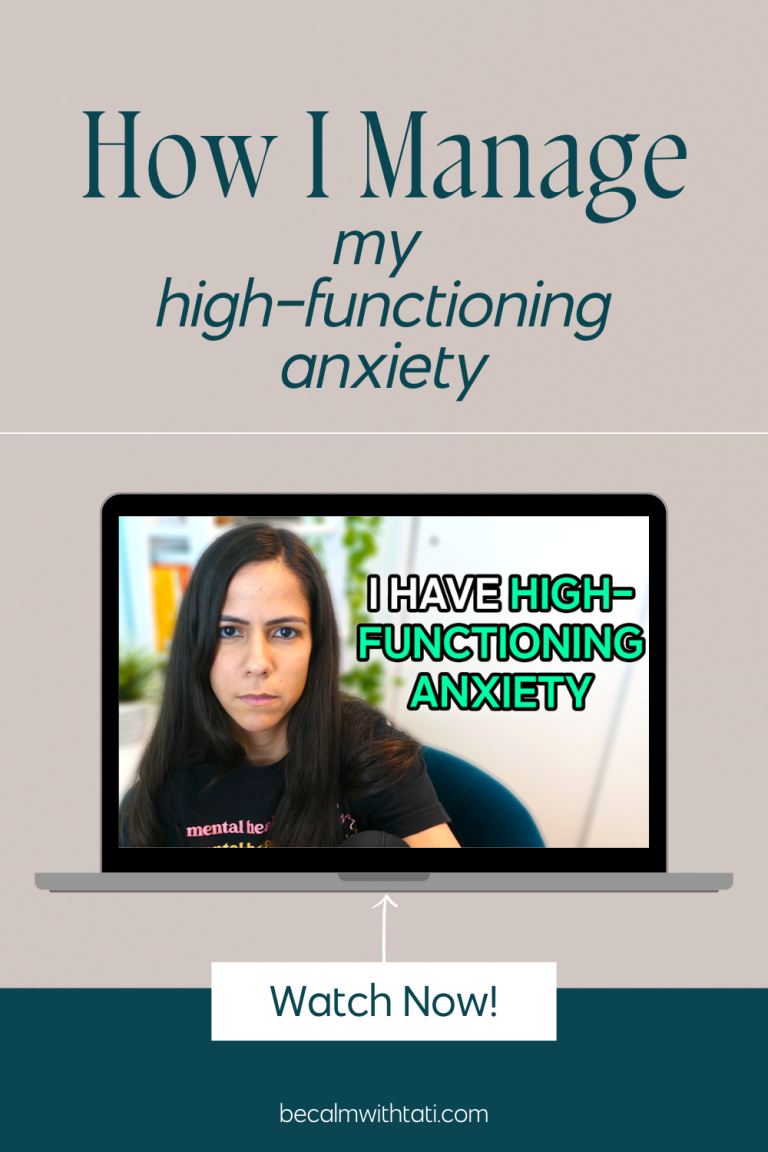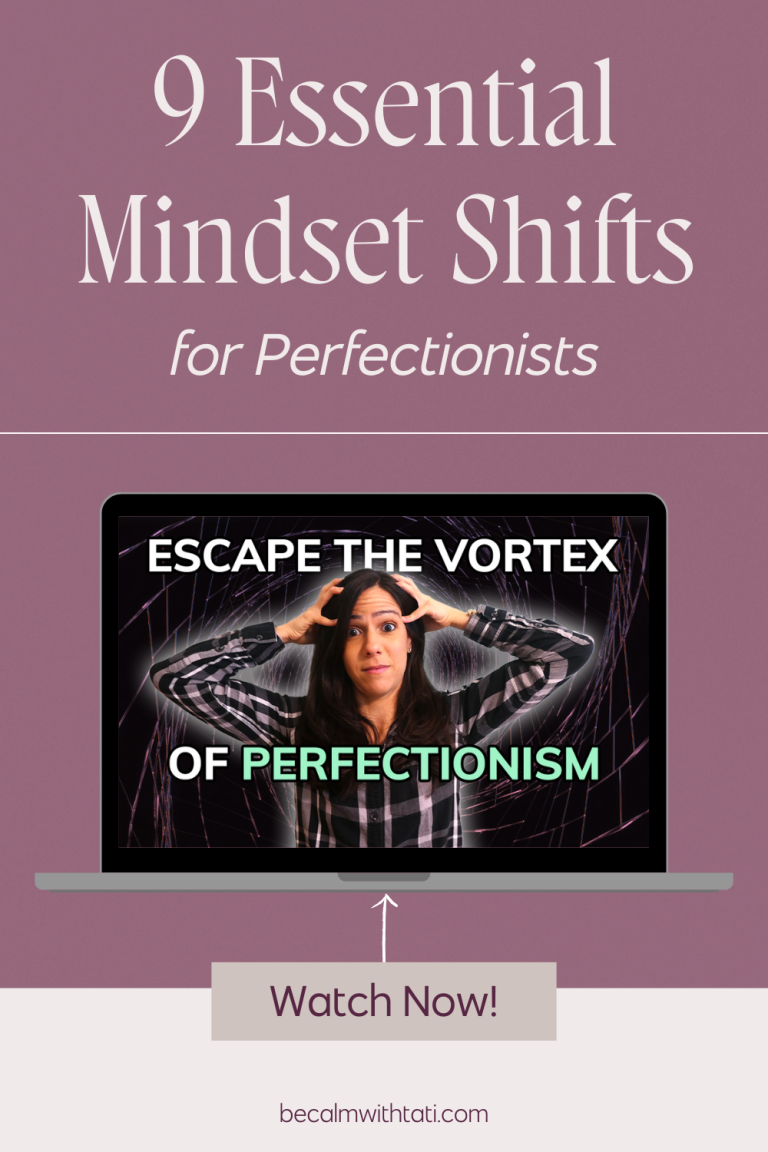Is constantly being connected and plugged in harmful for your well-being and mental health? Keep reading to learn how to disconnect to reconnect to increase your happiness.
These days, technology and media are ubiquitous. It can be hard to find a moment free from distractions, notifications, social media, and others around you wavering in and out of the moment to check their phones.
It’s wonderful to be connected to others. We have a level of access to information that has never been seen before in time. Just the invention of the cell phone has created so much more connectivity than ever imagined. No more than 20 years ago, most people were unable to communicate with each other unless they were next to a landline phone.
Additionally, the invention of the smartphone has allowed us to look up directions, connect with others via social media, and look up information at the drop of a hat.

The Downside Of Always Being Connected
As you may already know, too much of a good thing can be a bad thing. Despite the many benefits of technology, there are downsides to always being available to others and the internet.
The Negative Effects Of Technology
Always being available can increase stress and anxiety. We have less time to truly relax because even the sight of your phone on the table can leave a part of your brain that is active in preparation for a distraction at any moment. This can make it more difficult to focus and tune into what you are really doing.
Let’s be real, multitasking is a myth that results in decreased productivity and accuracy in both professional and personal realms. So being on your phone while watching TV, or answering texts while you’re trying to study are both ways you are dividing your attention and not truly focusing on either task.
In addition, being connected to the internet and social media can increase that feeling called the “fear of missing out” (FOMO). You don’t want to miss the latest news, text from your family member, or that Facebook update, do you? This FOMO can lead to compulsive checking of smart devices, causing addiction and a paradoxical feeling of not being connected to others.
Then, there is the comparison game. What creative treat is this child’s mom bringing to school? How extravagant was her baby shower? They can afford a house that nice? No matter how immune you think you may be, it can be difficult to not automatically compare yourself to the snapshots you see of other people’s lives online. This can result in lower self-esteem, increased stress, and increased depression.
Lastly, always being connected can decrease the creativity that comes from boredom. When you are constantly stimulated by readily accessible entertainment and information, you are not allowing your brain time to process and digest the information you are getting. We are so information overloaded that our brains do not have the time to be creative, which often comes about through boredom.

What I Learned From Disconnecting
I went to Alaska recently and camped in Denali National Park for a few of the nights I was out there. We were 85 miles into the park, accessible by only one road and surrounded by 6 million acres of wilderness. It was incredible. There was also absolutely no cell service or internet.
In between hiking, preparing food, sleeping, and being awestruck by the natural beauty of my surroundings, I had time to do nothing. I actually felt boredom for the first time in a long time. I read, wrote in my journal, drew (which I never do), took photos, and sat and thought.
I wondered how insane it is that most of us never enjoy time with ourselves and with our thoughts. Without the television on in the background, or a phone readily available… The experience was like coming back home to myself. It was remembering the feelings of boredom, creative and critical thought, and the benefits of sitting in nature and just observing.
At one point, while I was sitting and writing, a beautiful bird flew on a tree next to me and then hopped onto the ground and away. Quickly after, two more birds passed through. The experience of sitting and observing nature undisturbed was profound. It may sound simple, but disconnecting from the overload of information, even if only for a short while, can help you to appreciate the simple wonders of the world we inhabit.
“That man is rich whose pleasures are the cheapest.”
Henry David Thoreau Tweet

Tips to Disconnect Anywhere
So maybe you aren’t going camping in Alaska anytime soon. Whether or not you have an upcoming vacation planned, I think it is essential to plan moments to disconnect to reconnect with yourself during everyday life. Doing so can positively impact your mood, happiness, and creativity. What do you have to lose?
Keep reading for some simple tips you can try today.
Be Intentional With Technology Time
I make it a rule to not check my email before a certain time. Usually this is after my morning routine, which may consist of meditating, exercise, getting ready, and eating breakfast.
Why do I make this rule? Because I want to be in control of my well-being when I first wake up in the morning. I don’t know about you, but checking email can sometimes cause feelings of anxiety, stress, and pressure from others. Take time away from the stress and notifications so you can start off on a good foot first thing in the morning.
Another way you can do this is to set your phone on “Do Not Disturb” for certain automatic rules. For example, I have my phone set to “Do Not Disturb” from the time I go to bed, until the time I am ready to check my phone in the morning on both a weeknight and weekend schedule.

Spend Time In Nature
Spending time in nature is so beneficial for your mental health. Take a trip to your backyard, a local park or forest, or sit out on your balcony if you are able to see the trees.
A Stanford research study found that walking in nature could lead to a lower risk of depression. The study found that walking in nature resulted in neurological changes in the brain, specifically decreases in the area of the brain active during rumination, or repetitive negative thinking.
“Just as urbanization and disconnection from nature have grown dramatically, so have mental disorders such as depression. In fact, city dwellers have a 20 percent higher risk of anxiety disorders and a 40 percent higher risk of mood disorders as compared to people in rural areas.”
Rob Jordan, Stanford University
Take your dog for a walk in the park, enjoy a coffee in your backyard in the morning, or go for a hike on the weekends. The ways you can spend time in nature are endless, and even if you live in an urban area you can find a nearby park. And make it a point to leave your phone behind or not check it during this time.
Your mental health will benefit from it!

Make Alternatives To Technology Easily Accessible
You may reach for your phone or the television remote because it is easy, convenient, and entertainment on demand. The problem can happen when you are sucked into a Law And Order marathon or 30 minutes later you have wasted time stalking others on Instagram.
Make it easier to be intentional with your time and take a break from technology at the same time. Leave magazines or books in easily accessible places, for example the coffee table or your nightstand. Instead of reaching for your phone, read an article from a magazine, or a chapter from a book.
This can help you improve your focus, learn and retain new knowledge, and be more intentional with your time away from technology. Disconnect to reconnect with old-fashioned methods of entertainment.
Create Rules With Your Loved Ones
Being on the same page with your friends, family, and/or significant other can help make the transition to disconnect smoother. It can also help you disconnect to reconnect in your relationships. When the phones are away you can focus on actually listening, instead of being distracted.
Listening is one of the most important components of a healthy relationship and can improve trust, respect, and intimacy.
Creating rules to disconnect can be as simple as no cell phones at the dinner table or while spending any specific quality time together. Having a conversation and agreement about this practice can go a long way in improving your relationships.
Practice Mindfulness
Turn off the distractions and practice mindfulness in your everyday life. Mindfulness is simply present moment awareness and studies show that people who are aware in the present moment are happier.
You can start by choosing just one daily activity, set the phone aside and tune into your senses. If you choose brushing your teeth, focus on the feeling of the bristles against your teeth and gums, the smell and taste of the mint, the sight of yourself in the mirror.
Disconnect from your thoughts, social media, and your phone, and reconnect with your body and physical sensations.

Taking a minimum of 15 minutes daily to disconnect to reconnect can have a massive impact on your happiness and mental health. I hope you found these tips helpful and let me know your thoughts in the comments below!















One Comment
Hello! I work for IATP in Springfield, Il. I am always looking for good material for Wellness Wednesdays. I happened upon your article but was disappointed I would not be able to share a link to the article because it is not very accessible. Accessibility is not something everyone thinks or knows about so I thought I would drop a line in hopes that you may want to consider making your website more user-friendly for individuals with disabilities. Thank you and best of luck!